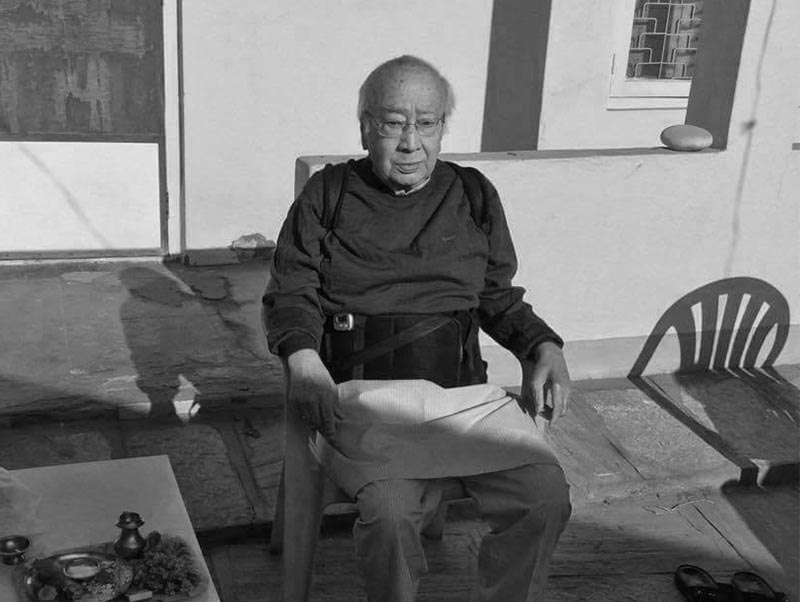Veteran journalist Shrestha no more
Kathmandu, March 18
Manindra Raj Shrestha, who was one of the first journalists to build a career in English language media in Nepal, passed away on Saturday. He succumbed to cardiac arrest. He was 86 and is survived by his wife, a son and a daughter.
Shrestha was the editor and publisher of Nepal’s second English language daily newspaper, The Motherland, which hit newsstands in January 1958. His editorship was so successful the newspaper became Nepal’s number one English daily soon after its launch, according to Prof P Kharel. At that time, the only other English language newspaper available in the market was The Commoner.
“The Motherland was ahead of many Nepali newspapers in terms of sales,” said Kharel. “Some of the ardent readers of the newspaper were politicians and bureaucrats, as it contained serious and critical content even during the Panchayat regime (when freedom of speech was curtailed).” The newspaper folded up in the 1990s, according to people who track developments in the media sector.
The newspaper was considered as a carrier of centre-right views. But Shrestha was mindful of not antagonising the Panchayat regime at that time because of his business interests, Kharel said, without elaborating. “But he took a jab at the bureaucracy and officials of the erstwhile Royal Palace.”
Shrestha, who attended St Xavier’s School in Kathmandu, went to Darjeeling to pursue college education. He was one of the board directors of Sagarmatha Sambad Samiti, a news agency that later merged with Nepal Sambad Samiti to evolve into Rastriya Samachar Samiti. He was also one of the first golfers in Nepal.
The newspaper that Shrestha founded and edited played a key role in generating some of the noted second-generation journalists such as Bhola Rana, Shyam KC, Madhav Acharya and The Himalayan Times founding editor Ram Pradhan. “These journalists honed their skills at The Motherland,” said Kharel. The Motherland also provided platform to those who wanted to write critical pieces, as this was not allowed in state-owned media.
One of the journalists who used to chip in articles to the newspaper was Bhairab Risal. The 91-year-old first-generation Nepali journalist used to work for the Rastriya Samachar Samiti, the state-owned national news agency, at that time. RSS did not publish articles critical of the government during the Panchayat regime.
“I used to send articles that could not be published in RSS to The Motherland. This used to supplement my income, which was essential to make a living, as the earning from RSS
was not enough,” said Risal. “But more than the lure of money it was inner satisfaction that propelled me to write for The Motherland.”






